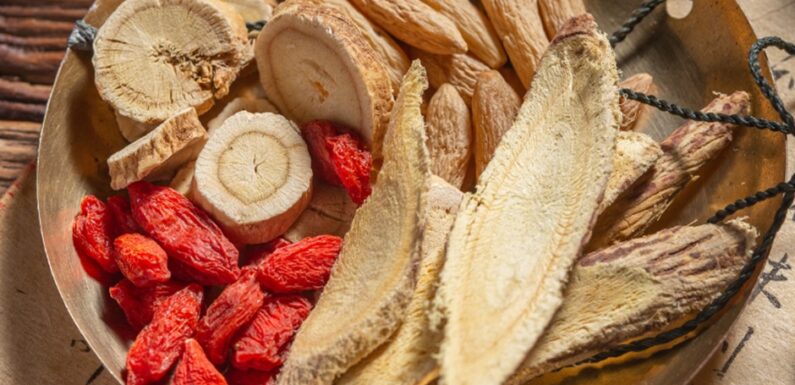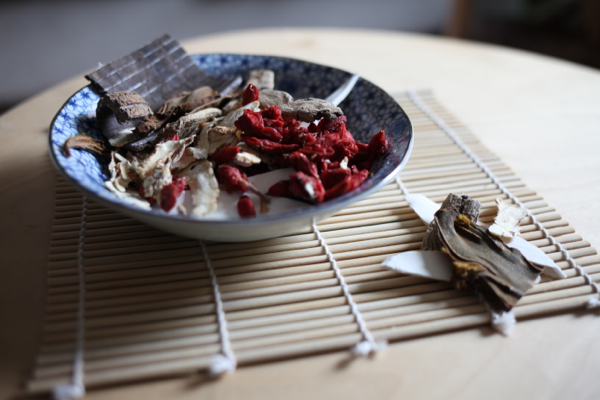
Traditional Chinese Medicine (TCM) has been integral to postpartum care in Singapore, with confinement herbs playing a vital role.
Discover how TCM assists new mothers during the confinement phase, focusing on the principles, techniques, and particular herbs utilised to promote recovery.
Principles of Traditional Chinese Medicine in Postpartum Care
TCM views postpartum care as a critical period for restoring balance and health. The primary principles include replenishing Qi (vital energy), nourishing the blood, and warming the body. TCM practitioners emphasise the importance of these principles to prevent long-term health issues and promote overall well-being.
Primary Practices in TCM for Postpartum Recovery
Herbal Remedies
TCM relies on herbal remedies to support postpartum recovery. Confinement herbs are specifically selected to address the unique needs of new mothers. These herbs are believed to help restore energy, support blood circulation, and enhance lactation.
Dietary Adjustments
Diet plays a significant role in TCM postpartum care. Confinement meals are meticulously prepared with herbs and ingredients that align with TCM principles. These meals aim to warm the body, replenish lost nutrients, and support healing.
Acupuncture and Acupressure
Acupuncture and acupressure are commonly used in TCM to alleviate postpartum discomfort and promote recovery. These practices are believed to help balance the body’s energy flow, reduce pain, and support overall well-being.
Essential Confinement Herbs Used in TCM
Dang Gui (Angelica Sinensis)
Dang Gui is one of the widely used confinement herbs in TCM. It nourishes the blood, regulates menstrual cycles, and alleviates postpartum pain. It is often included in herbal soups and teas for new mothers.
Dang Shen (Codonopsis Pilosula)
Dang Shen is used to replenish Qi and strengthen the immune system. It is a milder alternative to ginseng and is commonly used in postpartum recovery to boost energy levels.
Chuan Xiong (Ligusticum Chuanxiong)
Chuan Xiong is valued for blood circulation enhancement and pain alleviation. It is often used with other herbs to enhance its usefulness in postpartum care.
Hong Zao (Red Dates)
Red dates are filled with nutrients and are believed to nourish the blood and enhance overall vitality. They are commonly included in confinement diets to support the recovery process.
Gou Qi Zi (Goji Berries)
Goji berries are known for their antioxidant properties and are used to enhance overall health and vitality. In TCM postpartum care, they are often included in herbal teas and soups.
Confinement Practices in Singapore

Confinement Centres
Singapore has a growing number of confinement centres that offer specialised care for new mothers. These centres provide TCM-based treatments, including herbal remedies and acupuncture, to support postpartum recovery.
Home-Based Confinement Care
Many new mothers opt for home-based confinement care. This approach involves hiring a confinement nanny who prepares TCM-inspired meals and administers herbal remedies. The nanny also assists with baby care, allowing the mother to rest and recover.
TCM Clinics
Several TCM clinics specialise in postpartum care. These clinics offer personalised treatment plans that include herbal prescriptions, acupuncture sessions, and dietary advice tailored to the individual needs of each new mother.
Challenges and Considerations
While TCM provides valuable support during confinement, it is essential to consider potential challenges and limitations. Some herbs may interact with medications or have contraindications for unique conditions. Therefore, consulting a qualified TCM practitioner is helpful before starting any herbal regimen. Additionally, integrating TCM with modern medical practices requires careful coordination to ensure the safety and usefulness of postpartum care.
Conclusion
Traditional Chinese Medicine is an essential part of postpartum care in Singapore, as it focuses on using herbs to support new mothers during this period. By following TCM principles and integrating practices like herbal treatments, dietary changes, and acupuncture, TCM aims to facilitate overall recovery and long-term well-being. Recognising the unique advantages and obstacles of TCM in postpartum care can empower new mothers to make informed choices and enhance their healing process.
Visit Thomson Medical Group to start your path to recovery.

